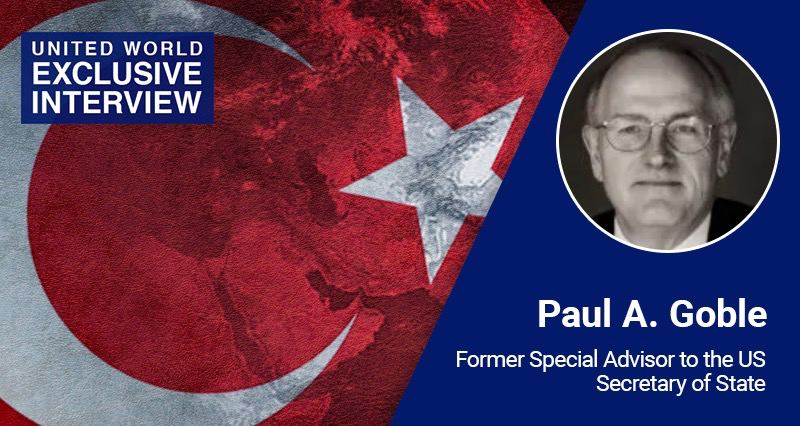In the distant future, China will start to see Türkiye as a competitor and try to limit Ankara’s influence, says the US expert.
In the distant future, China will start to see Türkiye as a competitor and try to limit Ankara’s influence, says the US expert.
By Tehran Tapdigov, Baku, Azerbaijan
Armenia drifting westwards, Azerbaijan applying officially for BRICS membership, Russian President Putin making one of his rare travels to Baku, turmoil in Georgia and a steady balance of tension and cooperation between Iran and Azerbaijan.
The South Caucasus is in a constant change that turns eyes to its grand neighbor, Türkiye.
We spoke about Ankara’s position from the Caucasus, reaching out to Central Asia and China with Paul A. Goble. Goble is a longtime specialist on ethnic and religious questions in Eurasia who served in various capacities in the U.S. State Department, the Central Intelligence Agency and the International Broadcasting Bureau. Among other positions, he was a Special Advisor to the Secretary of State and Senior Advisor to the Director, Voice of America.
Given Türkiye’s significant military support to Azerbaijan during the Second Karabakh War, particularly the use of Bayraktar TB2 UAVs, how do you think Türkiye’s recent advances in the defense industry will affect the geopolitical landscape of the Eurasian region?
Türkiye is going to be playing an ever-larger role not only in its immediate neighborhood but more generally, and not just with drones but with ships as well. All the countries in the region and all the major powers will be adapting themselves to this new reality and to the changes each will make in response to it.
In what ways might Türkiye leverage its defense industry advancements to enhance its political influence in Eurasia?
Any country that sells arms also gains influence. The process is not automatic, but it is more often the case than not. I assume Ankara will seek to continue this pattern.
How do you anticipate other major powers, such as Russia and China, responding to Türkiye’s growing defense capabilities?
Russia is most immediately concerned because of Türkiye’s growing role in the Caucasus and Central Asia but wants to benefit from Turkish arms as well. China’s reaction is far broader but longer term. In the immediate future, Beijing is unlikely to see this expansion in Turkish influence as harming its own concerns. But in the more distant future, China will increasingly view Türkiye as a competitor and take steps to limit its freedom of action.
Do you believe that France is hindering the normalization process between Azerbaijan and Armenia?
France is obviously closer to Armenia than to Azerbaijan. Paris wants a settlement but wants Yerevan to feel that it remains on its side. I don’t see what France is doing now as blocking a settlement, but only retaining for Paris’ influence among Armenians.
In the context of the current diplomatic and political tensions between Armenia and Russia, how do you assess Türkiye’s role in the region? What are the potential impacts of this tension on the power dynamics in the South Caucasus?
Türkiye is rapidly becoming the most important outside power in the south Caucasus. Russia isn’t capable of blocking this as long as it is at war in Ukraine. It will seek to limit Ankara’s role but is unlikely to be able to block it unless the situation in Georgia deteriorates further, a major reason Moscow is promoting just that.
Former President Trump’s motto of “Ending endless wars” aimed at withdrawing American troops from the Middle East. But it was not fulfilled. If Donald Trump is re-elected as President, will his policy of withdrawing the U.S. from Syria become a reality? How would this affect Türkiye?
Donald Trump’s record of saying one thing and then doing quite another is such that it is impossible to know what he might do if he were to return to the White House.

















Leave a Reply